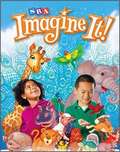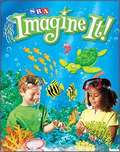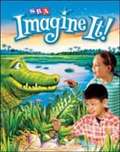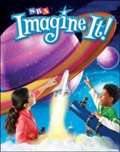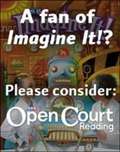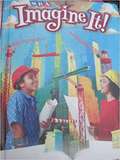- Table View
- List View
SRA Imagine It! Let's Talk About Credit Cards
by Sra Mcgraw-HillImagine It! is a comprehensive Reading and Language Arts program that will teach your children to read, write, and think independently!
SRA Imagine It! Level 1-Book 2 (Home, Sweet Home and I Am Brave)
by Sra Mcgraw-HillLiterature Anthology textbook for First Grade
SRA Imagine It! Level 3 Book 2 (Themes: Earth, Moon, and Sun; Communities across Time; Storytelling)
by Sra Mcgraw-HillLiterature Anthology for 3rd Grade
SRA Imagine It! Level 3, Book 2, Themes: Earth, Moon, and Sun; Communities Across Time; Storytelling
by Carl Bereiter Joe Campione Y BiemillerNIMAC-sourced textbook
SRA Imagine It! Odd Friendships
by Sra Mcgraw-HillImagine It! is a comprehensive Reading and Language Arts program that will teach your children to read, write, and think independently!
SRA Imagine It! Quarters of the Fifty States
by Sra Mcgraw-HillImagine It! is a comprehensive Reading and Language Arts program that will teach your children to read, write, and think independently!
SRA Imagine It! Savannah Homeland
by Sra Mcgraw-HillImagine It! is a comprehensive Reading and Language Arts program that will teach your children to read, write, and think independently!

